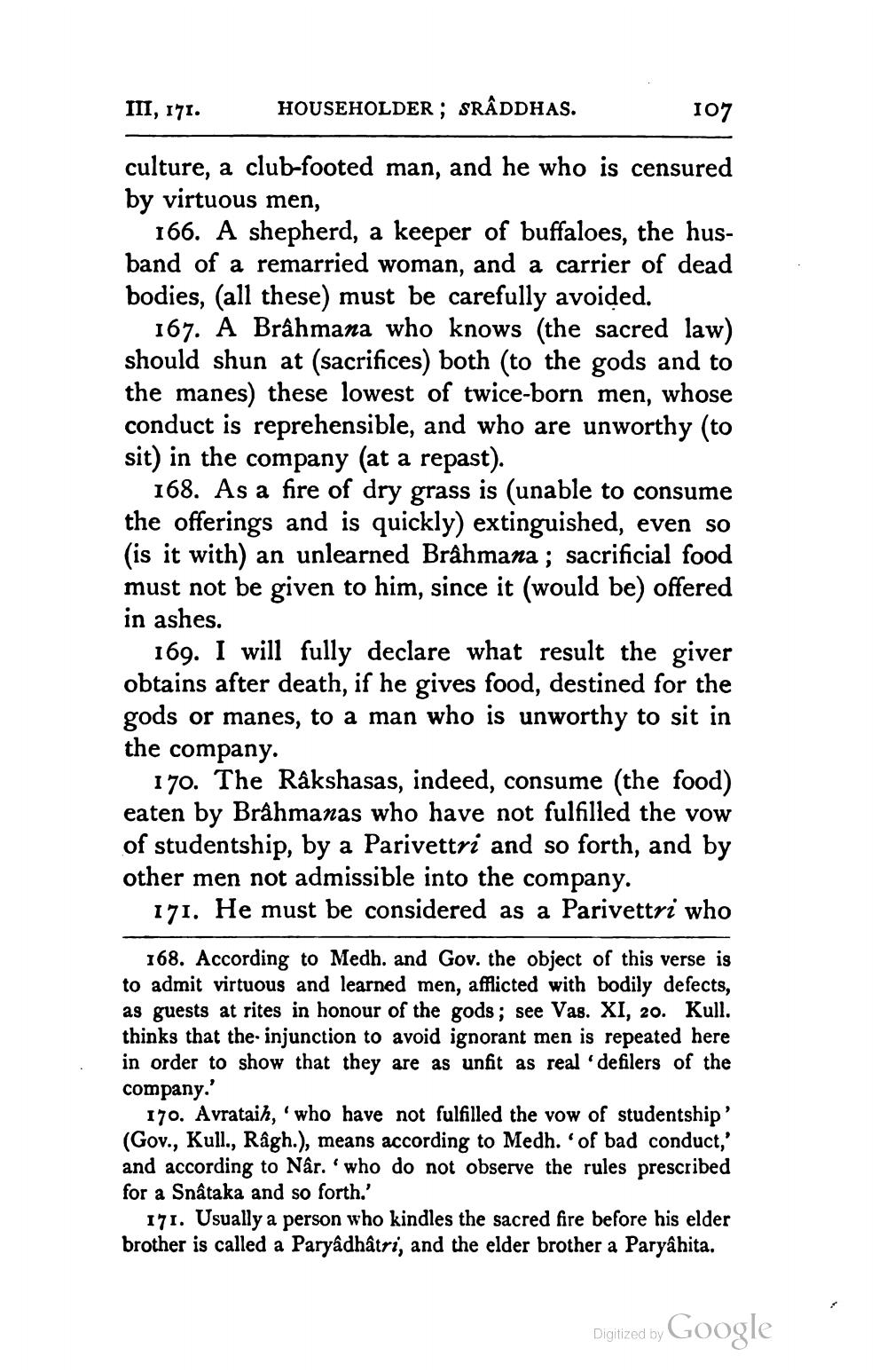________________
III, 171.
HOUSEHOLDER ; SRÂDDHAS.
107
culture, a club-footed man, and he who is censured by virtuous men,
166. A shepherd, a keeper of buffaloes, the husband of a remarried woman, and a carrier of dead bodies, (all these) must be carefully avoided.
167. A Brâhmana who knows (the sacred law) should shun at (sacrifices) both (to the gods and to the manes) these lowest of twice-born men, whose conduct is reprehensible, and who are unworthy (to sit) in the company (at a repast).
168. As a fire of dry grass is (unable to consume the offerings and is quickly) extinguished, even so (is it with) an unlearned Brahmana ; sacrificial food must not be given to him, since it (would be offered in ashes.
169. I will fully declare what result the giver obtains after death, if he gives food, destined for the gods or manes, to a man who is unworthy to sit in the company.
170. The Rakshasas, indeed, consume (the food) eaten by Brahmanas who have not fulfilled the vow of studentship, by a Parivettri and so forth, and by other men not admissible into the company.
171. He must be considered as a Parivettri who
168. According to Medh. and Gov. the object of this verse is to admit virtuous and learned men, afflicted with bodily defects, as guests at rites in honour of the gods; see Vas. XI, 20. Kull. thinks that the injunction to avoid ignorant men is repeated here in order to show that they are as unfit as real 'defilers of the company.'
170. Avrataih, who have not fulfilled the vow of studentship' (Gov., Kull., Râgh.), means according to Medh. ‘of bad conduct,' and according to Nar. who do not observe the rules prescribed for a Snataka and so forth.
171. Usually a person who kindles the sacred fire before his elder brother is called a Paryâdhatri, and the elder brother a Paryâhita.
Digitized by Google




